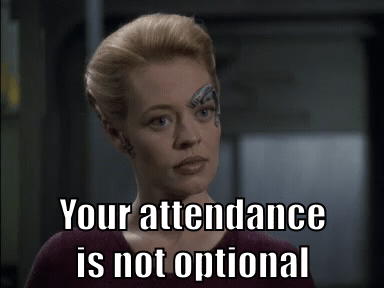"Everybody is a genius, But if you judge a fish by its ability to climb a tree, it will spend its whole life believing it is stupid" — Albert Einstein, another student with a bad reputation.
Go to bed at 11 p.m. Toss and turn until 3. Fall asleep. Suddenly, wake up to the shrieking sound of the "Skyscraper" alarm sound I've set on my alarm.
I don't want to get up. Not today. Not again.
It's 5:30 in the morning. I grudgingly get up, my head dizzy, as the cutting cold air outside of my bedroom cuts through me as I open the door. Brush my teeth. Take a warm shower.
No. I don't want to leave the shower. Not today. Not again.
5:55.
I've got to run again. I sprint to the car. Now I've got to wait till I can get driven.I'm too stressed to realize how cold and tired I am. I just can't be late again. The car stops. I run in, flash my ID and dash upstairs. Hopefully, I'm not too late. I glance at the clock. 6:17. Great. I'm late. Seriously-what time do I need to be waking up to make it on time? This bullshit is insane.
That is essentially my morning every weekday during the school year. Of course, any other student may just assume that this is how one learns. Not me. This shit won't fly by me.
Education is supposed to change a life. When you learn something, it's supposed to hit you deep down. Change your roots. Make you think differently. But school? School didn't inspire me. My life didn't change because of the lectures I sat down in. It didn't change because I woke early.
I know because the moment I come back from school, I clock onto my computer, and I spend my time learning how to influence, brand, and design. I know I'm learning because not only does it change the way people see my work, it changes the way I think and the way I behave. What I produce.
I'm calling BS.
It's assumed that school is the most important thing in a kid's life. That they have to be "educated" to get into a good college and then succeed at life- finding a decent job and making a good enough to live in. But does educated mean being able to do well on a bunch of tests and being able to turn in homework on time?
I'd argue that it's not. Being able to turn in things on time, and temporarily store facts on a routine basis sounds more like being able to be organized, rather than helping one become a smart and impactful individual.
Of course, being organized is something people should be able to do, but it's certainly not the only thing that somebody should be able to learn during high-school lectures.
Learning is supposed to be a natural, exciting process. The kids should be lively, ready to respond and fill their curiosity at a moments notice. They should be engaged to a truly kid-like, almost immature, level.
What's going on?
Let the records show that I did a bit of research. The result?
Money.
Us students don't learn because it's profitable to keep the education system as it is. There's a lot of lobbying that goes through Washington. Millions of dollars, actually (as according to The Washington Post). These millions, for example, are spent on a pro-testing policy, from institutions that brand themselves as "non-profits" (ex. The CollegeBoard, the makers of the SAT).
Those pro-testing policies allow those "non-profits" to either sell their tests, or force schools to spend money to purchase them For example, in Michigan, the SAT is a required test that all high-schoolers must take).
As a result, the money (in 2012, around 200 million of those big bucks) climbs up the greedy claws of the CollegeBoard like the most vile green slime you've ever seen, all while the kids throw up and break down. Some of that money is re-invested into giving senators a bit of a reward, maybe into a campaign or a little bit of lobbying.
Some of that money might also go towards the CEO's base salary of around $500,000 (as according to the NYT). For the record, the CollegeBoard isn't the only group lobbying- groups like the ACT, Pearson, and Mcgraw-Hill are also on the list (Yes, the same 2 companies that once gave you that horrid geometry textbook)
But let's refocus there for a second. Pro-testing policies. That's the key here. The big tests- the standardized ones. Doing well on these tests can save students money, and help boost a school's funding to keep them going for a good amount of time.
As a result, teaching towards tests that help determine how much funding a school will get, and help students save money to go to college is a practical move for schools to save their asses, and the kids some money from the ever-rising tuitions colleges are asking for.
But by teaching towards a test, schools will create required subjects. Students will have to learn how to take a test. If they don't, the school is screwed. Thus, the tests take up a good portion of the assessments a class may give — so the students know how to take the big ones.
And with all those required subjects, school has to run long and often, meaning that wake-up times have to be early to a level in which not even John Oliver could make a better joke out of them than they already do to themselves (For the record, that long time in school is likely to disengage students throughout the day, which is a problem because earlier in the day, students may be way too sleepy to pay attention as well)
As a result, students don't learn. They meticulously memorize the quadratic formula until they walk out of the classroom door on test day. They don't spend time engaging in discussions about topics that have suddenly grasped their curiosity.
A new TV show, perhaps, or maybe a new website they had seen. Because in a young mind, there are so many things to talk about- so many things to talk and genuinely learn about. Get their natural questions answered. Talk to others, get assistance throughout the year on an idea they might have, and small, specific topics that they suddenly want to learn about.
But no. They have to drag their unwilling brains to an institution built to wire them for a test and answer 151 questions during Junior Year. Their brains may be starved of their desire to learn and develop a taste against that same word (learn).
The material may not change lives. They may be become a (figuratively) prisoner for wanting to be a bit rebellious or creative. They may miss out on years worth of material they could have learned naturally. But it helps prepare them for the test.
As a result, school has not become a place to learn — it's become a place that ends up forming a curriculum that wire's the brain for a test. It may as well be a pro-longed test-prep agency at this point.
I didn't wake up at 5:30 in the morning for this. I didn't sacrifice 6 hours of my precious day for this. Or my brainpower for this.
Right now, rebellions in schools have been existent because of so many bodies lost to school shootings. #NeverAgain.
But for the longest time, there has never been a rebellion because of the even greater number of minds that have been lost, become depressed, and the murder of learning that the school system inflicted upon children in exchange of a couple million.
It's kind of funny. Our lack of education on this topic has led us to let the lack of education in schools reign. But that's the power of education- because information is very powerful. It can bring down corrupted power and wealth like a bullet.
So I'm creating a modest proposal. Let's have another movement. One that saves the minds of the children we strive to save with #neveragain.
Because this heinous crime of twisting education is one that #WontFoolMe.











































